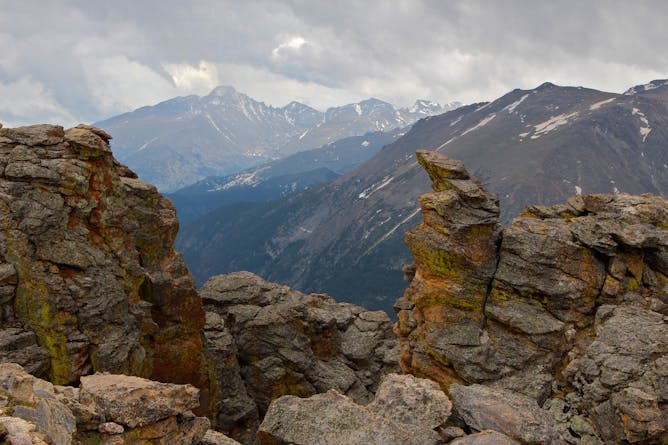|
|
|
Editor's note
|
|
Tomorrow is National Decision Day, the deadline for college-bound high school seniors to choose what university to go to. This is arguably the biggest decision in their lives so far. And it’s being made at a time when there’s increased pressure – from both sides of the political spectrum – for colleges and universities to demonstrate their value to students, families and taxpayers. So, what is the best way to judge what a college education is worth? That’s the question we asked the presidents of three of the country’s leading
universities: Michael Drake of The Ohio State University, Michael Schill of the University of Oregon and Mark Schlissel of the University of Michigan.
Nitrogen is a critical nutrient for all life forms, and for decades scientists have believed that virtually all of it came from the air. But more nitrogen accumulated in soils and plants than they could explain. In a recent study, Benjamin Houlton, professor of global environmental studies at the University of California, Davis, found that the “missing nitrogen” comes from weathering of bedrock. This paradigm shift raises an intriguing prospect: could rock nitrogen fertilize plant growth that would pull more carbon from the air? Potentially, Houlton
writes – but it’s no magic answer to climate change.
|
Maria Balinska
Editor and Co-CEO
|

|
|
Top Stories
|

The U.S. continues to wrestle with questions about the value of a college degree.
ByEmo/Shutterstock.com
Mark S. Schlissel, University of Michigan; Michael H. Schill, University of Oregon; Michael V. Drake, The Ohio State University
The presidents of the University of Michigan, the University of Oregon and The Ohio State University offer three ways to judge the value of a college education.
|

Long’s Peak framed by rock outcrop, Rocky Mountain National Park, Colorado.
Roy Luck
Benjamin Z. Houlton, University of California, Davis
Scientists have long thought most nitrogen in Earth's ecosystems comes from the air, but new research shows it also is released as rocks weather. This could boost plant growth and help sequester carbon – but not fast enough to avert climate change, as some pundits have claimed.
|
Politics + Society
|
-
Alexis Dudden, University of Connecticut; Joan E. Cho, Wesleyan University; Mary Alice Haddad, Wesleyan University
You have to walk before you can run, and baby steps are the best way forward in Korea.
-
Alicia Grandey, Pennsylvania State University
Three studies found that customers and managers rate black employee performance lower than white employees because they're perceived as unfriendly or rude.
|
|
Science + Technology
|
-
Norman A. Paradis, Dartmouth College
When you send off a cheek swab to one of the private genome companies, you may sacrifice not just your own privacy but that of your family and your ancestors.
-
Donald Norris, University of Maryland, Baltimore County; Anupam Joshi, University of Maryland, Baltimore County; Laura Mateczun, University of Maryland, Baltimore County; Tim Finin, University of Maryland, Baltimore County
Local governments don't pay much attention to cybersecurity, leaving them vulnerable to hijacking as happened to Atlanta and Baltimore.
|
|
|
|
|
|
|
|
|
|
Trending on Site
|
-
Mark Serreze, University of Colorado
Climate change is transforming the Arctic, with impacts on the rest of the planet. A geographer explains why he once doubted that human actions were causing such shifts, and what changed his mind.
-
Jay L. Zagorsky, The Ohio State University
Companies these days offer insurance on pretty much anything you buy, no matter how inexpensive. How do you know when it's worth it?
-
Robert Beelman, Pennsylvania State University
Mushrooms, long popular on pizza and in cooking, are getting more attention for their health benefits. Here are some reasons you might want to add them to your grocery list and not just your pizza.
|
|
Today’s chart
|
-

 |
Theodore Endreny
State University of New York College of Environmental Science and Forestry
|
| | | |
| |
|
|
|
|
|
|
|